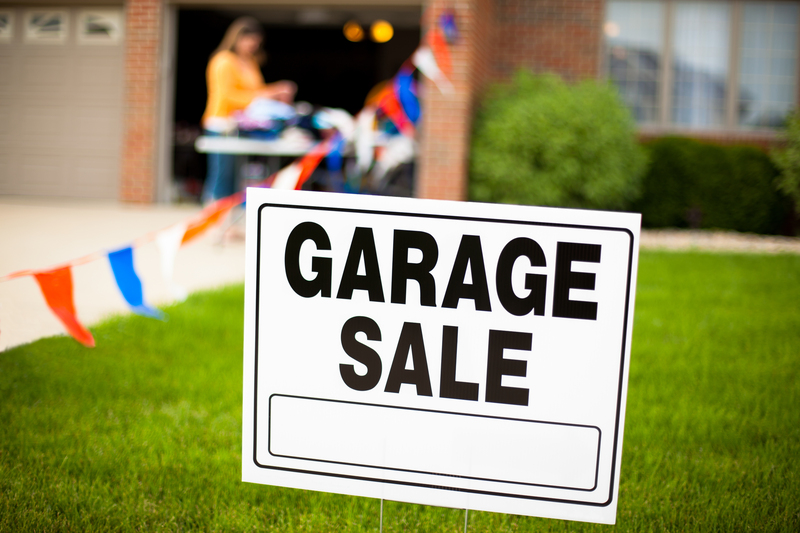Recycling Gone Wrong: Common Mistakes
Posted on 01/05/2025
Recycling is a commendable step towards environmental sustainability, but when done incorrectly, it can lead to more harm than good. In this comprehensive guide, we will delve into some common mistakes that are made during recycling and provide useful tips to help you avoid these pitfalls. By the end of this article, you'll understand the pros and cons of recycling, along with key takeaways and practical tips for improved recycling practices.
1. Contaminating Recyclables
One of the most common mistakes in recycling is contamination. This happens when items that are not recyclable are placed into recycling bins or when recyclables are not properly cleaned. For example, placing greasy pizza boxes or dirty plastic containers into the recycling bin can spoil an entire batch of recyclables.
Tip: Always rinse and clean plastics, glass, and metals before recycling them. Check local guidelines to identify what can or cannot be recycled in your area.

2. Recycling Plastic Bags
Plastic bags are notorious for clogging recycling machinery, causing significant disruptions in recycling facilities. Many people mistakenly place plastic bags in their recycling bins, expecting them to be processed alongside other plastics.
Tip: Reuse plastic bags whenever possible or take them to designated drop-off points, usually found at grocery stores, for proper recycling.
3. Improper Sorting
Most municipalities have specific guidelines for how recyclables should be sorted. Ignoring these rules can lead to recyclables being discarded as waste.
Tip: Familiarize yourself with your local recycling rules. This information is often available on municipal websites or through local waste management services.
4. Throwing Away Electronics
Electronic waste (e-waste) is a growing concern and recycling it requires special handling. Throwing electronics in regular recycling bins can result in harmful chemicals leaching into the environment.
Tip: Dispose of e-waste at designated facilities or through special recycling programs designed for electronics.
5. Assuming All Plastics Are Recyclable
Not all plastics are created equal, and many types cannot be recycled through curbside programs. Plastics with codes #3, #6, and #7 are often non-recyclable.
Tip: Check the plastic recycling codes and only recycle those that are accepted in your area. Generally, plastics marked with #1 and #2 are widely accepted.
6. Recycling Small Items
Small items like bottle caps and shredded paper can be problematic for recycling facilities. These items often fall through the sorting machinery and end up as waste.
Tip: Ensure small items are properly contained. For bottle caps, you can leave them on the bottle if instructed by your local recycling program, or collect and place them in a larger container before recycling.
The Pros and Cons of Recycling
Pros
- Reduces landfill waste: Recycling helps in decreasing the amount of waste that ends up in landfills.
- Conserves natural resources: Recycling materials like aluminum, paper, and glass reduces the need for raw resources.
- Saves energy: Recycling typically requires less energy compared to producing new materials from scratch.
- Decreases pollution: Proper recycling reduces pollutants that would otherwise contribute to land, water, and air pollution.
Cons
- Costs: The recycling process can be costlier compared to landfill disposal.
- Efficiency: Not all collected recyclables are actually recycled due to contamination and inefficient sorting.
- Energy Consumption: Some kinds of recycling processes can still consume a fair amount of energy.
- Requires Public Participation: Effective recycling depends heavily on public awareness and participation.

Key Takeaways
- Always clean recyclables to avoid contamination.
- Understand your local recycling guidelines.
- Dispose of electronic waste responsibly.
- Not all plastics are recyclable; check local regulations.
Conclusion
Recycling correctly is crucial for its effectiveness and environmental benefit. By avoiding common mistakes, you can help ensure that your efforts are truly contributing to a healthier planet. Always stay informed about local recycling guidelines, clean your recyclables, and be mindful of what can and cannot be recycled. Together, we can make a significant impact through responsible recycling practices.
With these tips and insights, you're now well-equipped to recycle more effectively and responsibly. Happy recycling!
Latest Posts
Enhance Business Efficiency with Waste Collection

